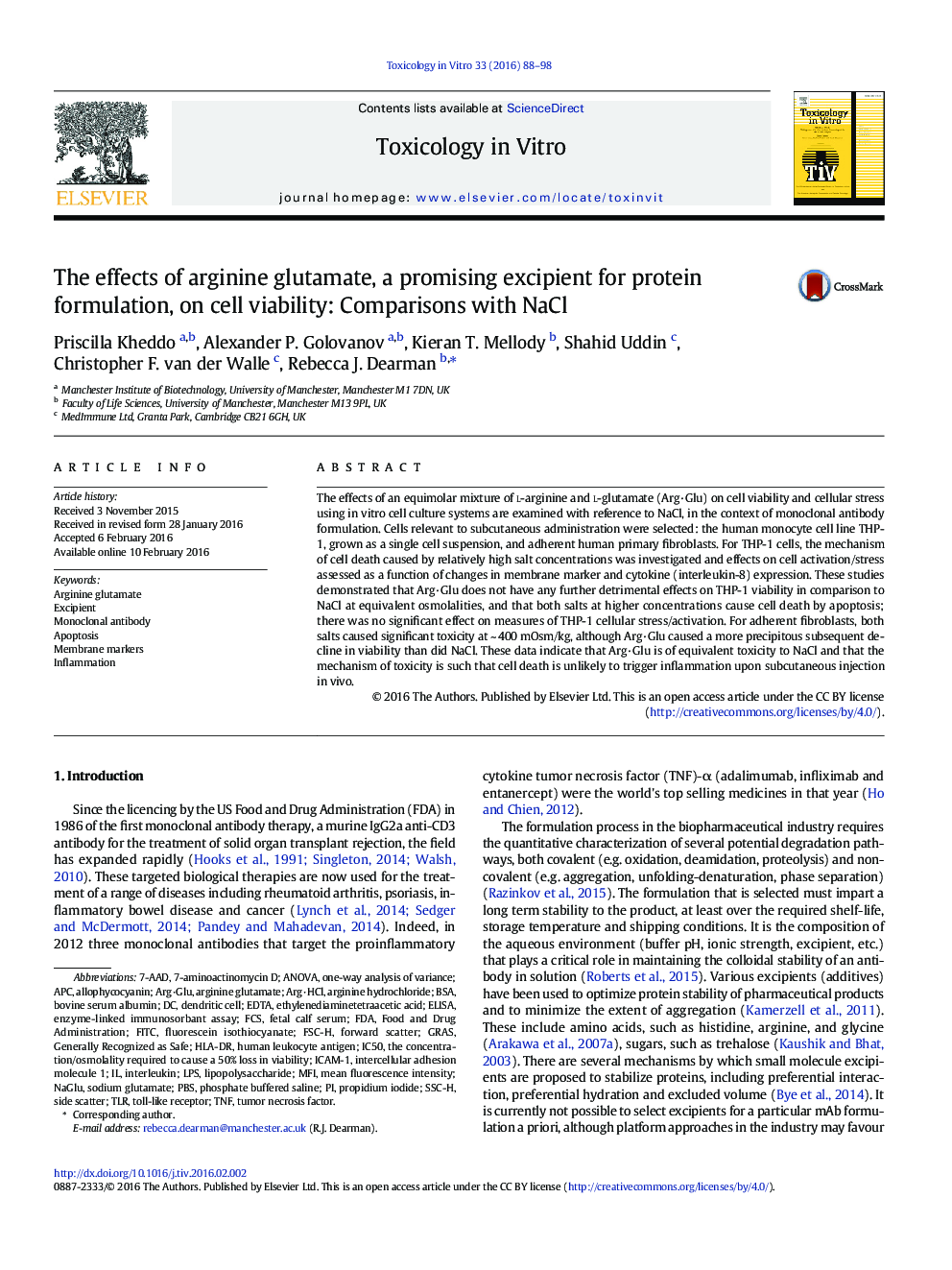| Article ID | Journal | Published Year | Pages | File Type |
|---|---|---|---|---|
| 5861001 | Toxicology in Vitro | 2016 | 11 Pages |
â¢The effect of Arg·Glu on cell viability was examined with reference to NaCl.â¢Arg·Glu is of equivalent toxicity to NaCl.â¢The mechanism of cell death is via apoptosis and is thus not pro-inflammatory.â¢Arg·Glu as a subcut excipient is not expected to result in atypical inflammation.
The effects of an equimolar mixture of l-arginine and l-glutamate (Arg·Glu) on cell viability and cellular stress using in vitro cell culture systems are examined with reference to NaCl, in the context of monoclonal antibody formulation. Cells relevant to subcutaneous administration were selected: the human monocyte cell line THP-1, grown as a single cell suspension, and adherent human primary fibroblasts. For THP-1 cells, the mechanism of cell death caused by relatively high salt concentrations was investigated and effects on cell activation/stress assessed as a function of changes in membrane marker and cytokine (interleukin-8) expression. These studies demonstrated that Arg·Glu does not have any further detrimental effects on THP-1 viability in comparison to NaCl at equivalent osmolalities, and that both salts at higher concentrations cause cell death by apoptosis; there was no significant effect on measures of THP-1 cellular stress/activation. For adherent fibroblasts, both salts caused significant toxicity at ~ 400 mOsm/kg, although Arg·Glu caused a more precipitous subsequent decline in viability than did NaCl. These data indicate that Arg·Glu is of equivalent toxicity to NaCl and that the mechanism of toxicity is such that cell death is unlikely to trigger inflammation upon subcutaneous injection in vivo.
